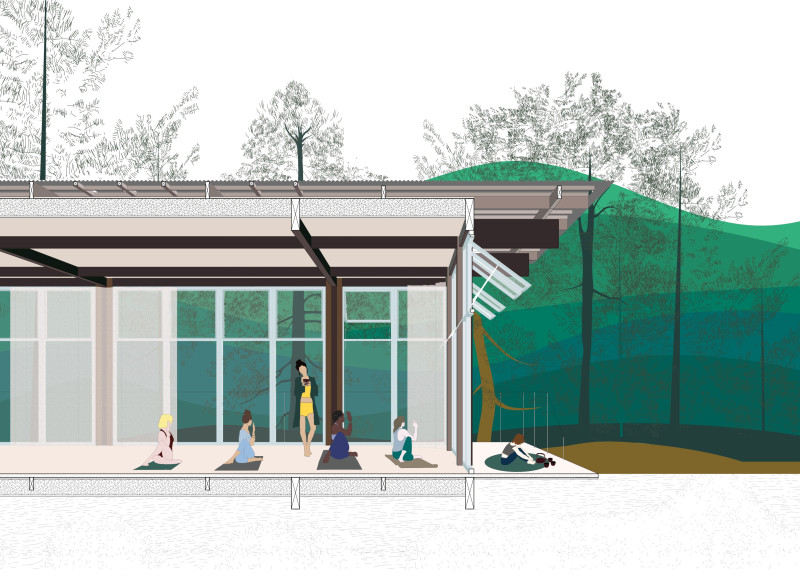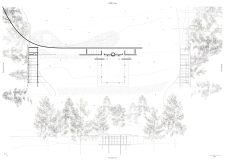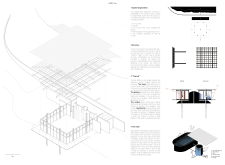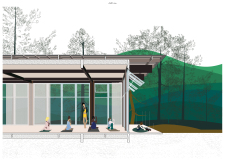5 key facts about this project
One of the distinctive features of the project is its layered approach to spatial organization. The architectural design includes zones that serve both communal and individual purposes, such as the yoga practice room, kitchens, and multifunctional areas. These elements promote flexibility and adaptability, accommodating diverse user needs while fostering a sense of community. By orienting key spaces towards the natural landscape, the design invites occupants to engage with the outdoors, facilitating a harmonious balance between interior and exterior experiences.
Material selection plays a significant role in reinforcing the integrity and aesthetics of the project. Primary materials used include tundra wood for structural components, which not only offers warmth but also longevity. Expansive glazing makes up a significant portion of the facade, allowing natural light to permeate the interior while connecting occupants with their surroundings. Concrete is employed for foundational elements, providing structural stability, while steel is incorporated in frameworks that support the extensive glass, emphasizing both form and function without compromising durability.
The project adopts unique design approaches that set it apart from more conventional designs. Notably, the integration of natural ventilation and geothermal energy systems exemplifies a commitment to sustainability and energy efficiency. These systems facilitate climate control through passive strategies, reducing reliance on mechanical systems. The implementation of rainwater management systems further highlights the project's dedication to environmentally sensitive design, promoting resource management within the local ecosystem.
By exploring architectural plans, architectural sections, and architectural ideas within "Skill I Rise," readers can gain a comprehensive understanding of how this project excels in both functionality and ecological responsibility. Discover the various elements and nuances that make this design stand out in the realm of contemporary architecture.


























